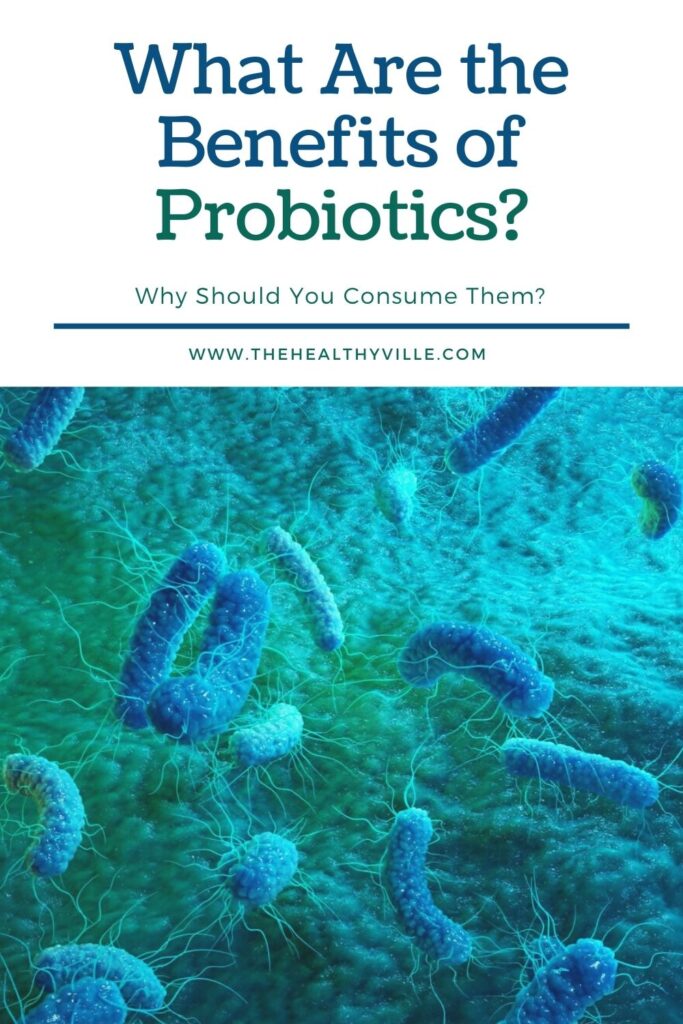What are the benefits of probiotics? What are probiotics really? Why do you need to regularly consume them? Find out all the answers you need!
Postbiotics are components resulting from the fermentation of intestinal bacteria. These are responsible for multiple functions in the body, with future applications for human health.
Postbiotics have recently appeared in the scientific literature as possible positive components for humans.
These have the ability to reduce inflammation and maintain balance in the colon. We discover the latest findings.
What are postbiotics?
A large number of bacteria known as microbiota are present in the human digestive tract. These coexist in balance with the human being (or host).
Probiotics are living microorganisms that colonize the intestine and help the immune system function, among other functions. We ingest them through food or supplements. These include bifidobacteria, lactobacilli, and bacteroides.
On the other hand, prebiotics are those components that support probiotics. In general, they are derived from carbohydrates and starchy foods. It is through fermentation that these nourish the intestinal bacteria.
Unlike these two, postbiotics are a by-product or result of the action of probiotics. They are defined as substances produced by probiotics that exert metabolic or immunomodulatory effects on the host.
When gut bacteria feed on fiber and other compounds, they generate some waste products. Therefore, it can be said that postbiotics occur naturally, as a result of the activity of the microbiota.
Some examples are the following:
- Short-chain fatty acids, such as butyrate, propionate, or acetate.
- Vitamins of group B and vitamin K.
- Lipopolysaccharides.
- Amino acids such as tryptophan, phenylalanine, and tyrosine.
- GABA, serotonin, acetylcholine, and other neurotransmitters.
What are the benefits of probiotics?
At the moment, the data available to know all its functions in the body are scarce.
But roughly, some of its mechanisms of action and the properties they have for human health can be highlighted:
- Immunomodulatory activity is one we know most of. Some have the ability to induce the proliferation of anti-inflammatory cytokines or to stimulate T cell differentiation
- Due to this anti-inflammatory activity, postbiotics may have a role in cancer prevention. In addition, they can moderate the effectiveness of cancer treatments and mitigate their side effects.
- Some may have direct antimicrobial effects, as they are able to protect the walls of the intestine, modulate the environment or compete with the receptors that pathogens require for their activity.
- They also have an important role in lipid metabolism. As a consequence, they can reduce the risk of cardiovascular problems.
- They help in the treatment of inflammatory bowel diseases. This action is due to some probiotic bacteria such as Lactobacillus casei. Postbiotics can be a safe alternative in the treatment of patients with irritable bowel syndrome who do not tolerate probiotics well.
Health considerations
Thanks to its multiple properties, in recent times the possibility of supplementing with postbiotics in certain situations has been investigated. These types of products are considered safe by experts and can sometimes have advantages over probiotics.
Furthermore, they do not contain harmful bacteria, do not need growth or colonization once ingested, have a high amount of active components and are required in very low doses.
It is important to know that you can achieve the benefits that postbiotics can provide only with the intake of a food supplement. This requires lifestyle changes, such as physical activity, adequate rest, and emotional well-being.
In addition, all these changes must be accompanied by modifications in the overall diet. To improve health, it is advisable to eat fresh, nutrient-dense foods, increase the proportion of vegetables, reduce processed foods, and drink water.
How can you introduce them into the diet?
Like probiotics and prebiotics, one of the ways to ingest postbiotics is through supplements. But at the moment they are not so accessible.
Through food it is possible to naturally increase the production of postbiotics by the microbiota. A diet with abundant sources of probiotics and prebiotics will prove positive in this regard.
The priority would be the following:
- Fermented dairy products, such as yogurt and kefir.
- Other fermented foods and beverages, such as sauerkraut, kimchi, tempeh, or kombucha.
- Vegetables and fruits: artichokes, asparagus, garlic, onions, leeks, apple, bananas or berries.
- Whole grains and legumes: oats, barley, wheat, peas and all kinds of beans.
When to consult with specialists
Taking probiotics to increase postbiotic secretion is a well-accepted option. However, some people with suppressed immune systems can have serious adverse reactions.
This happens after undergoing surgery, during pregnancy and in children. They would also not be suitable in case of heart disease or gastrointestinal tract.
Before taking any supplement, it is always advisable to consult with your doctor or a specialist on the subject. Especially when suffering from chronic diseases or following any type of pharmacological treatment.
Likewise, it is essential to inform yourself well before purchasing any product. In some cases, they may not contain the minimum amounts of the compound to exert the desired effects.
New compounds with potential applications
Postbiotics are a by-product of fermentation the intestinal bacteria carry. As in their day, probiotics and prebiotics have aroused interest in their potential benefits for the body.
These include the regulation of the microbiota itself, the reinforcement of the immune system, the activity against pathogens or the anti-inflammatory action. But for these to be beneficial supplements or functional foods, there’s a need of a consensus on their definition and formulation.
Don’t forget to SHARE what are the benefits of probiotics with your friends and family on your social networks!

